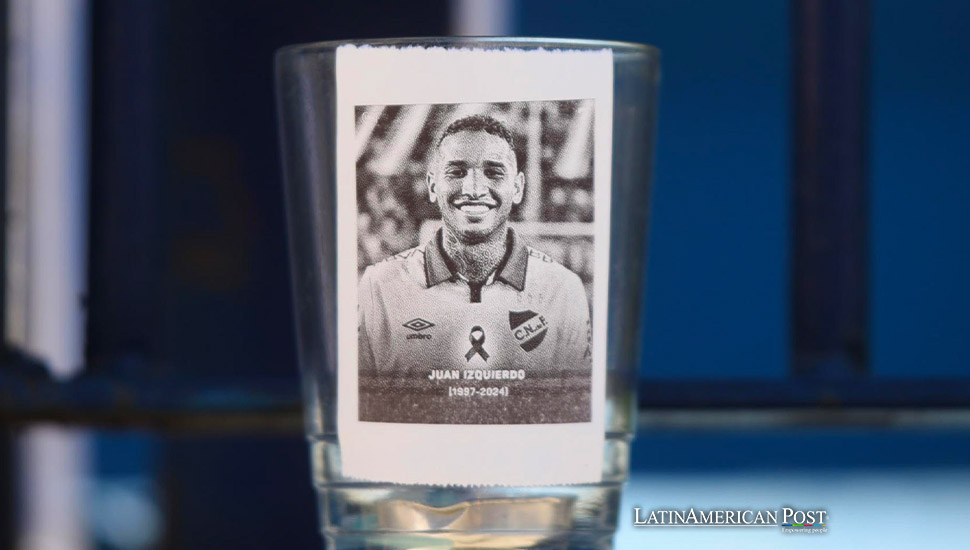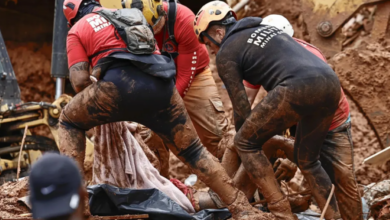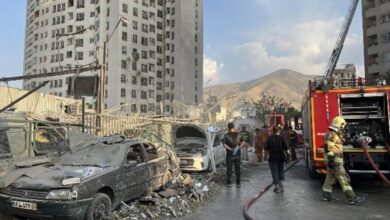Fallen Stars: Izquierdo and Other Latin American Soccer Players Who Died on the Pitch

The soccer world is still in mourning after Uruguayan defender Juan Izquierdo tragically passed away at the age of 27 following a collapse during a Copa Libertadores match last week. His death has cast a shadow over the sport, reminding us of the risks players face and highlighting similar tragedies that have struck other Latin American athletes on the field.
In what was meant to be a night of intense competition, the soccer community was instead met with tragedy as Juan Izquierdo, a 27-year-old defender for Club Nacional, collapsed on the pitch during a crucial Copa Libertadores fixture. The match, held at Estadio do Morumbi in Sao Paulo on August 22, saw Nacional facing off against Brazilian giants Sao Paulo in the second leg of their last-16 tie.
Izquierdo, who had been introduced as a half-time substitute, suddenly fell to the ground in the game’s latter stages, leaving teammates and spectators in shock. Medical staff immediately rushed to his aid, administering emergency treatment on the field before he was swiftly transported to Albert Einstein Hospital. Despite their efforts, Izquierdo’s condition deteriorated, and he was placed in the intensive care unit under neurological care. The soccer world held its breath as the club shared updates on his condition.
Sadly, on August 26, Club Nacional confirmed the devastating news that Izquierdo had passed away, having suffered an irregular heartbeat that led to his collapse. The club expressed their deep sorrow in a heartfelt social media post: “It is with deepest pain and shock in our hearts that Club Nacional de Football announces the passing of our beloved player Juan Izquierdo. We sincerely condolences to his family, friends, colleagues, and loved ones. All of Nacional is mourning his irreparable loss.”
The news of Izquierdo’s death sent shockwaves throughout the soccer community, prompting an outpouring of grief and tributes from fans, players, and officials alike. The Uruguayan Premier Division postponed all matches scheduled for the weekend following the incident, allowing players and fans time to grieve and pay their respects to the young defender.
Uruguay’s national team captain, Luis Suarez, shared his emotions on social media, writing, “Pain, sadness, it is hard to explain. May he rest in peace. I wish a lot of strength for his family and friends.” CONMEBOL president Alejandro Dominguez also expressed his condolences, stating, “South American football is in mourning. My condolences to Club Nacional de Uruguay and all his loved ones.”
Remembering Juan Izquierdo’s Legacy
Juan Izquierdo was more than just a player on the pitch; he symbolized perseverance and dedication in Uruguayan soccer. Born and raised in Montevideo, he began his professional career with Cerro, a club based in his hometown. From there, he moved through the ranks of several top-tier Uruguayan teams, including Penarol, Montevideo Wanderers, and Atletico San Luis.
Izquierdo’s journey in soccer was one of steady progression and commitment. He earned a reputation as a reliable defender, known for his strong tackling and ability to read the game. His talent did not go unnoticed, and in 2022, he joined Club Nacional, one of Uruguay’s most prestigious clubs. His time at Nacional was marked by hard work and dedication, which endeared him to his teammates and fans.
In 2023, Izquierdo moved significantly to Liverpool, another top-flight Uruguayan side, where he played a crucial role in securing the 2023 Uruguayan Premier Division title. His contributions on the field were integral to the team’s success, and his leadership was invaluable.
Despite his achievements with Liverpool, Izquierdo’s loyalty to Nacional saw him return to the club in January 2024. His sudden death during the Copa Libertadores match has left a void in the hearts of those who knew him, both on and off the field. Club Nacional paid tribute to their player, stating, “Juan Manuel was a sportsman committed to the club and loved by all his teammates and members of the National Football Club. Dear Juan, you will always be in our memory.”
Other Latin American Players Lost
Tragically, Juan Izquierdo’s death is not an isolated incident. Soccer has seen its share of heartbreak, with several Latin American players succumbing to similar fates on the field. These incidents serve as grim reminders of the physical toll the sport can take on its athletes.
In 2003, Brazilian midfielder Serginho collapsed and died during a match between São Caetano and São Paulo, a tragedy that shocked the nation. Serginho was later found to have had an undiagnosed heart condition, which had not been detected during routine medical check-ups.
In 2004, Peruvian player Víctor Zapata, who played for Sporting Cristal, collapsed during a training session and died shortly after due to a heart attack. His death brought attention to the importance of rigorous health screenings for players, particularly in countries where access to advanced medical care might be limited.
2007, another tragedy struck when Antonio Puerta, a promising young defender from Sevilla, collapsed during a match against Getafe in the Spanish La Liga. Although Puerta was of Spanish origin, his untimely death resonated deeply in Latin America, where he was highly regarded as a talented player with a bright future.
More recently, in 2017, Paraguayan footballer Bernardo Gabriel Bayona died at the age of 19 after collapsing during a match in the local league. His death, like those before him, highlighted the need for better medical preparedness and awareness of underlying health conditions that can affect even young, seemingly healthy athletes.
These incidents raise important questions about the health and safety of soccer players, particularly in Latin America. While the physical demands of the sport are well known, the risks associated with heart conditions and other underlying health issues are often overlooked. The death of Juan Izquierdo has reignited the conversation about what more can be done to protect players on the field.
A Call for Greater Player Safety Measures
As the soccer community mourns the loss of Juan Izquierdo, there is a growing call for more stringent health and safety measures to be implemented in the sport. The tragic deaths of players like Izquierdo, Serginho, Zapata, and others have highlighted the need for regular health screenings and better emergency preparedness during matches.
Heart conditions, in particular, pose a significant risk to soccer players, given the intense physical exertion required in the sport. Medical experts have long advocated for more comprehensive cardiovascular screening programs for professional athletes, which could help identify potential issues before they become life-threatening.
In addition to better screening, improved emergency response protocols are also needed. Medical staff’s quick response during Izquierdo’s collapse is a testament to the importance of having well-trained personnel on hand at all times. However, there is always room for improvement, particularly in ensuring that all clubs have access to the necessary medical equipment and expertise regardless of their resources.
The soccer world has seen some progress in this area, with organizations like FIFA and CONMEBOL implementing guidelines for player safety and medical care. However, more must be done to ensure these measures are consistently applied across all levels of the sport, particularly in regions where resources may be limited.
As the soccer community reflects on the loss of Juan Izquierdo, his death must catalyze change. The young defender’s legacy should not only be remembered for his contributions on the field but also as a reminder of the importance of protecting the health and safety of all athletes. By implementing more rigorous health checks and ensuring that emergency response measures are in place, the sport can honor the memory of players like Izquierdo and prevent future tragedies.
The death of Juan Izquierdo is a heartbreaking reminder of the risks that soccer players face every time they step onto the field. As the Latin American soccer community mourns the loss of one of its own, there is a renewed focus on the need for better health and safety measures to protect athletes. The legacy of Juan Izquierdo and others who have lost their lives on the pitch will continue to inspire efforts to make the sport safer.




